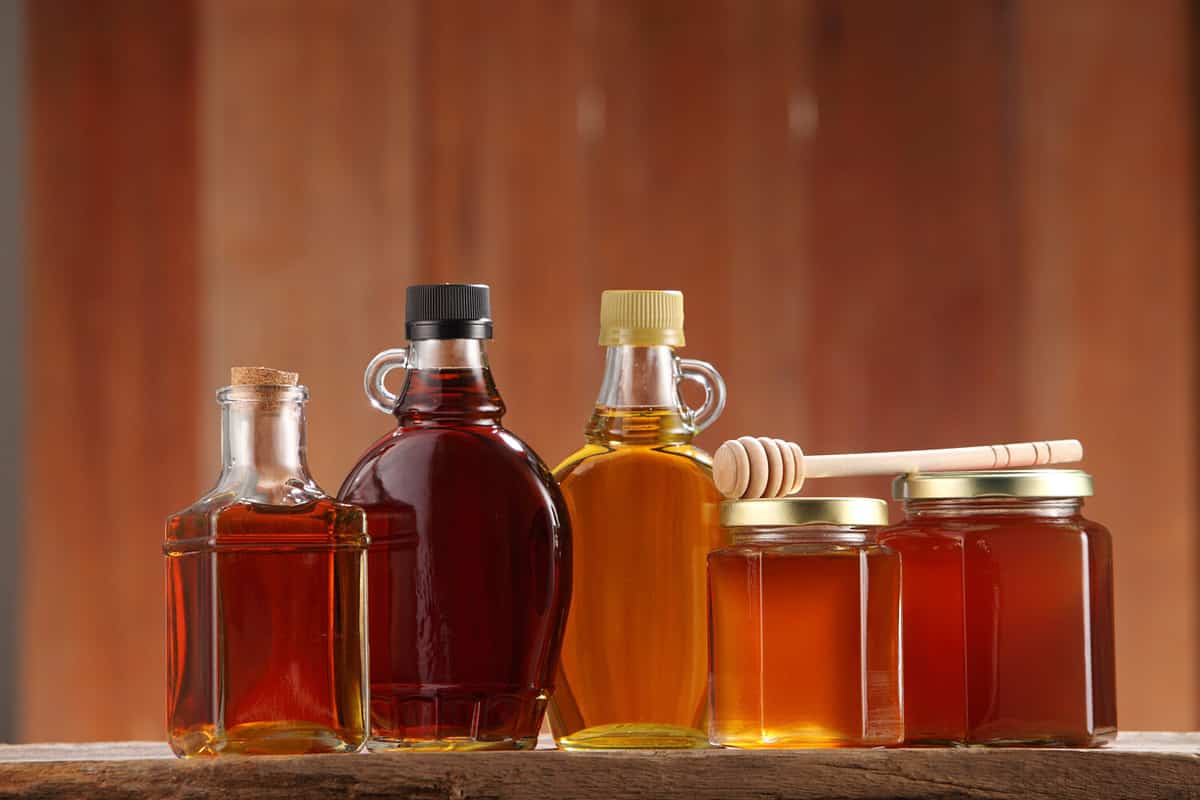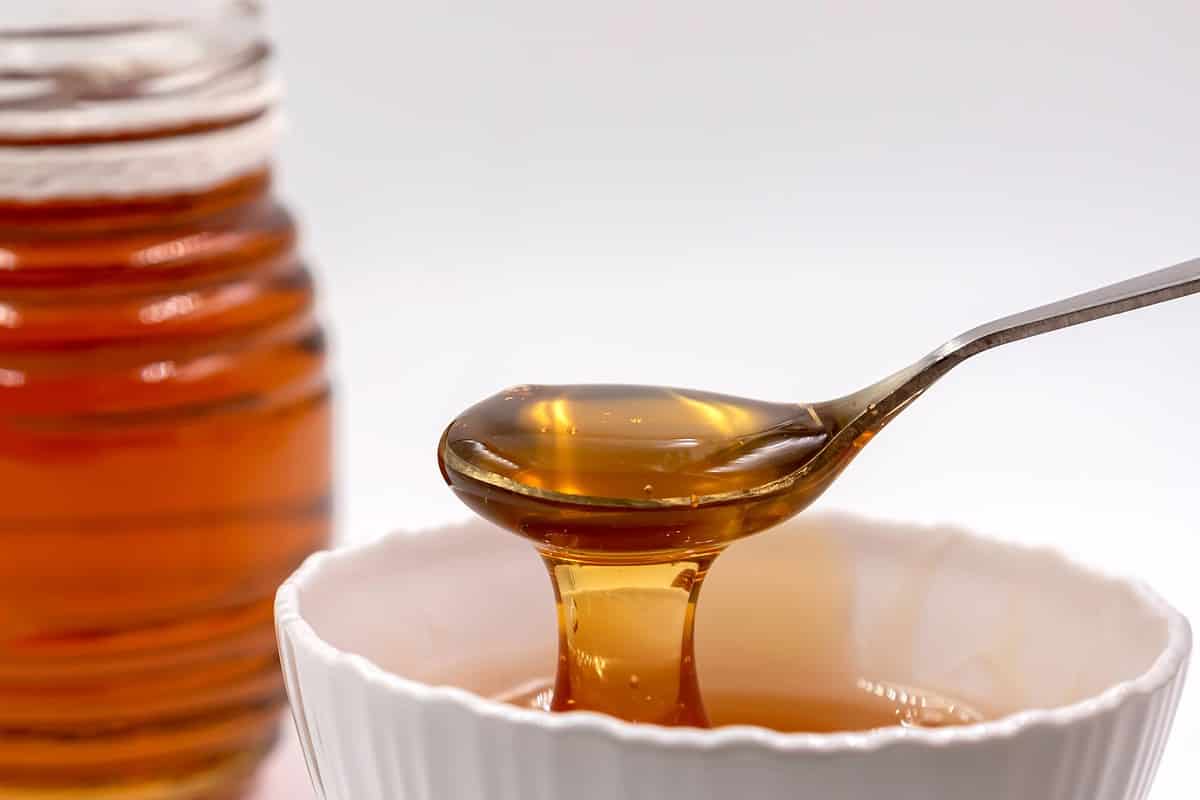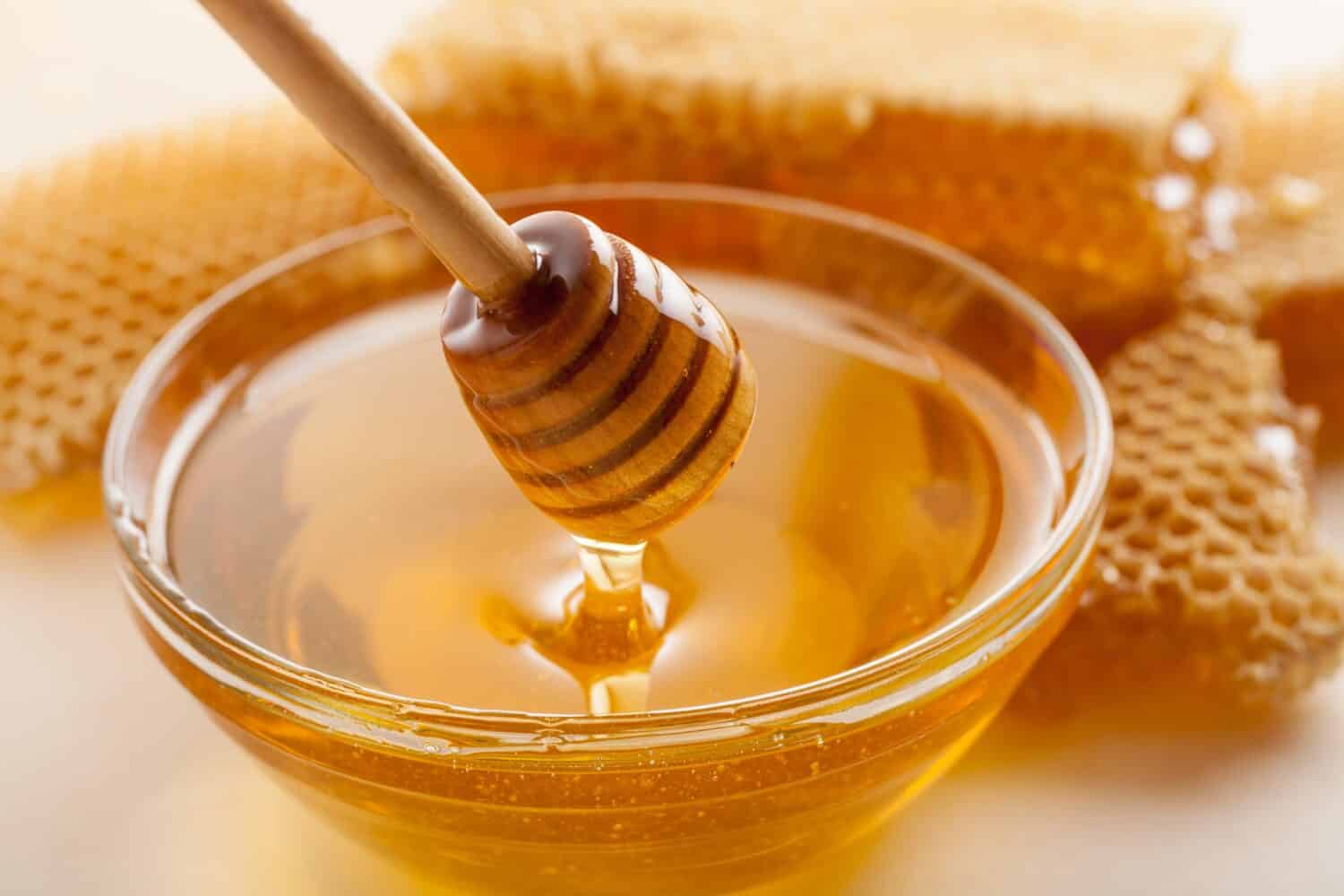Honey is often seen as a healthy alternative to sugar. But it still has a high sugar content, so why do people say it's healthier? This idea comes from the other benefits that honey offers. Honey is healthy because it is known to have antioxidant properties and be a heart-healthy option. The only time honey would be unhealthy for you is if you are consuming too much of it. It's important that you don't consume too much sugar as it is proven that high blood sugar can lead to cardiovascular disease, type 2 diabetes, and other health issues. Let's take a look at honey, how it can benefit you, and how it can be harmful.
What Is Honey?
Honey is produced by bees using nectar from plants. They collect nectar to eat and once digested, it creates honey. They store it in honeycombs, and this honey becomes their food source. When we harvest honey through beekeeping, we leave the bees some honey for their food source or provide them with an alternative, most commonly sugar water.
There are different types of honey depending on what plant the nectar is harvested from. Some common types of honey include avocado, blueberry, sage, eucalyptus, orange blossom, and clove.

Honey is commonly used in tea as a natural sweetener.
©Anastasia Voskresenskaya/Shutterstock.com
Health Benefits
Honey often is high in antioxidants. Antioxidants help to fight off free radicals and can minimize damage to cells. They play an important role in fighting diseases and keeping us healthy. Antioxidants have been shown to help protect against diabetes, heart disease, and cancer.
If you swap out sugar for honey, studies have shown that it could improve your heart health. In a 30-day study, people who switched out honey for sugar saw a decrease in their LDL cholesterol (bad cholesterol) and an increase in HDL cholesterol (good cholesterol). It was also found that their triglyceride levels were lower. High triglyceride levels can lead to certain heart diseases.
Honey has also been commonly used in traditional medicine. It is used like a topical ointment and applied to the skin to help heal wounds. The science behind honey as a topical ointment comes from its antibacterial properties that keep the growth of microorganisms at bay. This was proven in a study where manuka honey was applied to diabetic ulcers, and it was found that the honey was as effective as typical wound dressings in 97% of people. Honey can also help treat skin conditions like herpes, dermatitis, and psoriasis.
Health Risks
Because honey is still high in sugar, it is also high in calories and can be bad for you if consumed in excess. There are approximately 64 calories in one tablespoon of honey. Although this may not seem like a lot, the calories can add up quickly. If consuming too much honey over a period of time, it could possibly lead to weight gain. Because sugar can cause blood sugar to rise and fall quickly, it can lead to increased hunger, leading people to eat and consume more calories. It has been proven that an increased intake of sugar leads to a higher risk of weight gain and obesity.

There are over 300 different types of unique honey.
©focal point/Shutterstock.com
Best Types Of Honey
It's important to know that not all honey has the health benefits mentioned above. Unfortunately, some companies will mix their honey with syrup to maximize profit. Although buying honey that is high-quality may be more expensive, it is worth the investment.
Raw honey is usually a safe choice for finding a honey that offers possible health benefits. Raw honey is not filtered, pasteurized, or processed, so it ensures that the natural health components are still active in the product.
It's also important to check whether your honey is free of added ingredients or syrups. Additives to your honey can diminish the possible health benefits as it becomes diluted.
Can Children Consume Honey?
Please note that children under one year old should not consume any honey. Consumption of honey for children of this age would put them at risk for a disease called infant botulism. This is caused by a bacteria in honey called Clostridium botulinum. Infant botulism can cause trouble breathing and muscle weakness. Once children become one, their digestive system is usually developed enough to fight off this bacteria.

Beekeeping started around 9,000 years ago in North Africa.
©montira areepongthum/Shutterstock.com
Summary
Honey can offer great health benefits, including antioxidant properties that fight free radical disease and aid in cholesterol balance, which is great for heart disease prevention. But, it's important to remember that honey is still high in sugar, and if consumed too much, it can lead to high blood sugar, which can then, in turn, lead to obesity, type 2 diabetes, or other chronic illnesses.
The image featured at the top of this post is ©Billion Photos/Shutterstock.com

